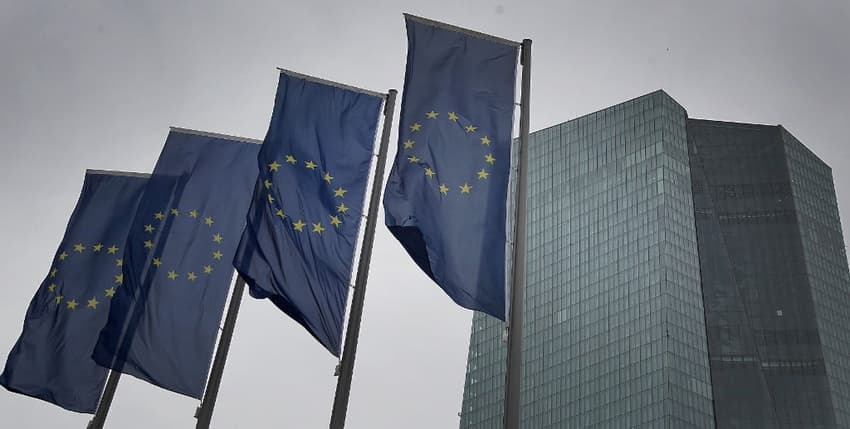EXPLAINED: Why Switzerland's EU free movement referendum could impact much more than immigration

On Sunday September 27th, the Swiss will vote on whether to curb immigration from the European Union. But if the proposal is given the green light at the polls, it will greatly impact Switzerland’s relations with the EU.
The initiative seeks to limit the number of foreigners coming into the country from the EU by allowing Switzerland to regulate its immigration policy autonomously, and not based on treaties with the European Union.
However, there is much more at stake in this referendum than just immigration.
Though surrounded by the EU countries, Switzerland is not a member of the bloc.
However, in the past the government has negotiated a series of bilateral treaties with Brussels, which give Swiss businesses a much-needed direct access to the European market.
What are the treaties that Switzerland has with the EU?
Besides the Free Movement of Persons agreement (AFMP), which allows EU nationals to work in Switzerland, and which the ‘Limitation Initiative’ seeks to nullify, there are also other treaties, which are crucial for the country’s economy.
Among them are agreements on free trade, exchange of information, agriculture, research, environment, police cooperation and asylum coordination, civil aviation, road transport, tourism, education, and pensions.
What would happen if the immigration proposal passes?
Switzerland would lose out on some of these deals with the EU.
All the agreements signed in the same package as the AFMP, known as Bilaterals I, which include elimination of technical barriers to trade, agriculture, research, air and land transport, as well as the law which sets basis for international competitive bidding for certain public contracts, “would automatically cease to apply”, according to the government.
This is called a ‘guillotine clause’.
Also, Switzerland would be prohibited from “entering into any new international obligations that grant freedom of movement to foreign citizens”.
READ MORE: How will Switzerland's autumn referendums turn out?
What would be the next step?
If the initiative is accepted, the Federal Council will have to negotiate a way of terminating the AFMP with the EU within 12 months.
If these negotiations fail, the government must unilaterally terminate the AFMP within a further 30 days.
When that happens, the immigration from the EU will be restricted and six bilateral agreements will be cancelled.
Has a similar situation happened before?
In 2019, the Swiss voters had to decide whether the country should tighten its gun laws to comply with stricter rules required by the European Union.
Brussels threatened to exclude Switzerland from the Schengen zone, along with the tourism revenue and police and judicial support that the membership in the open-border zone brings, if the proposal was rejected at the polls.
However, this “worst-case scenario” was averted, as 64 percent of voters accepted EU regulations.
Comments
See Also
The initiative seeks to limit the number of foreigners coming into the country from the EU by allowing Switzerland to regulate its immigration policy autonomously, and not based on treaties with the European Union.
However, there is much more at stake in this referendum than just immigration.
Though surrounded by the EU countries, Switzerland is not a member of the bloc.
However, in the past the government has negotiated a series of bilateral treaties with Brussels, which give Swiss businesses a much-needed direct access to the European market.
What are the treaties that Switzerland has with the EU?
Besides the Free Movement of Persons agreement (AFMP), which allows EU nationals to work in Switzerland, and which the ‘Limitation Initiative’ seeks to nullify, there are also other treaties, which are crucial for the country’s economy.
Among them are agreements on free trade, exchange of information, agriculture, research, environment, police cooperation and asylum coordination, civil aviation, road transport, tourism, education, and pensions.
What would happen if the immigration proposal passes?
Switzerland would lose out on some of these deals with the EU.
All the agreements signed in the same package as the AFMP, known as Bilaterals I, which include elimination of technical barriers to trade, agriculture, research, air and land transport, as well as the law which sets basis for international competitive bidding for certain public contracts, “would automatically cease to apply”, according to the government.
This is called a ‘guillotine clause’.
Also, Switzerland would be prohibited from “entering into any new international obligations that grant freedom of movement to foreign citizens”.
READ MORE: How will Switzerland's autumn referendums turn out?
What would be the next step?
If the initiative is accepted, the Federal Council will have to negotiate a way of terminating the AFMP with the EU within 12 months.
If these negotiations fail, the government must unilaterally terminate the AFMP within a further 30 days.
When that happens, the immigration from the EU will be restricted and six bilateral agreements will be cancelled.
Has a similar situation happened before?
In 2019, the Swiss voters had to decide whether the country should tighten its gun laws to comply with stricter rules required by the European Union.
Brussels threatened to exclude Switzerland from the Schengen zone, along with the tourism revenue and police and judicial support that the membership in the open-border zone brings, if the proposal was rejected at the polls.
However, this “worst-case scenario” was averted, as 64 percent of voters accepted EU regulations.
Join the conversation in our comments section below. Share your own views and experience and if you have a question or suggestion for our journalists then email us at [email protected].
Please keep comments civil, constructive and on topic – and make sure to read our terms of use before getting involved.
Please log in here to leave a comment.